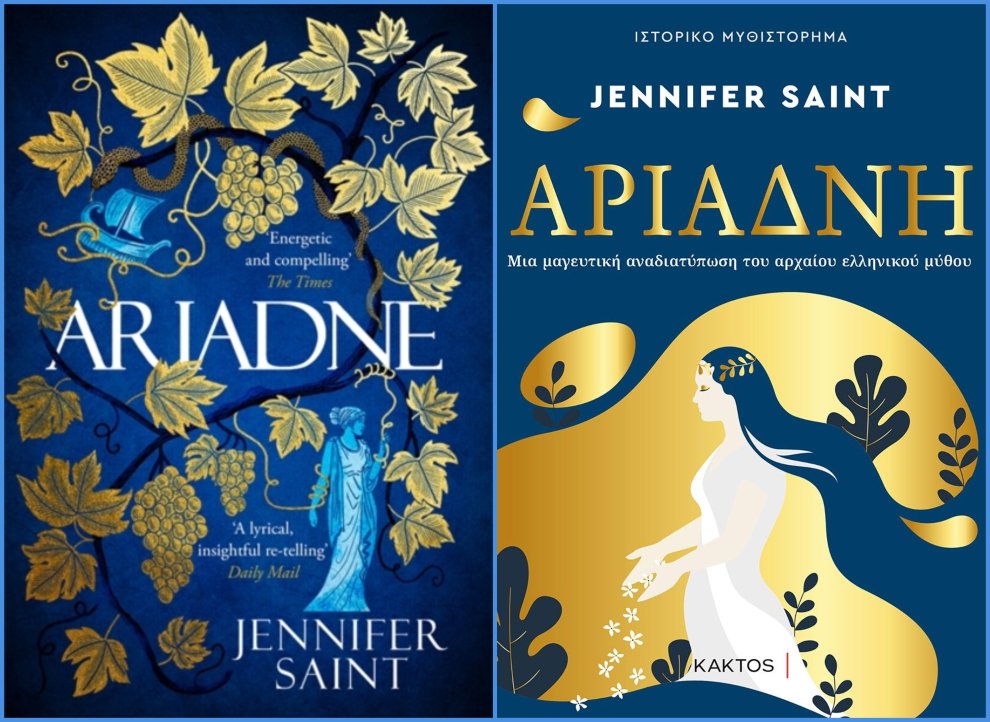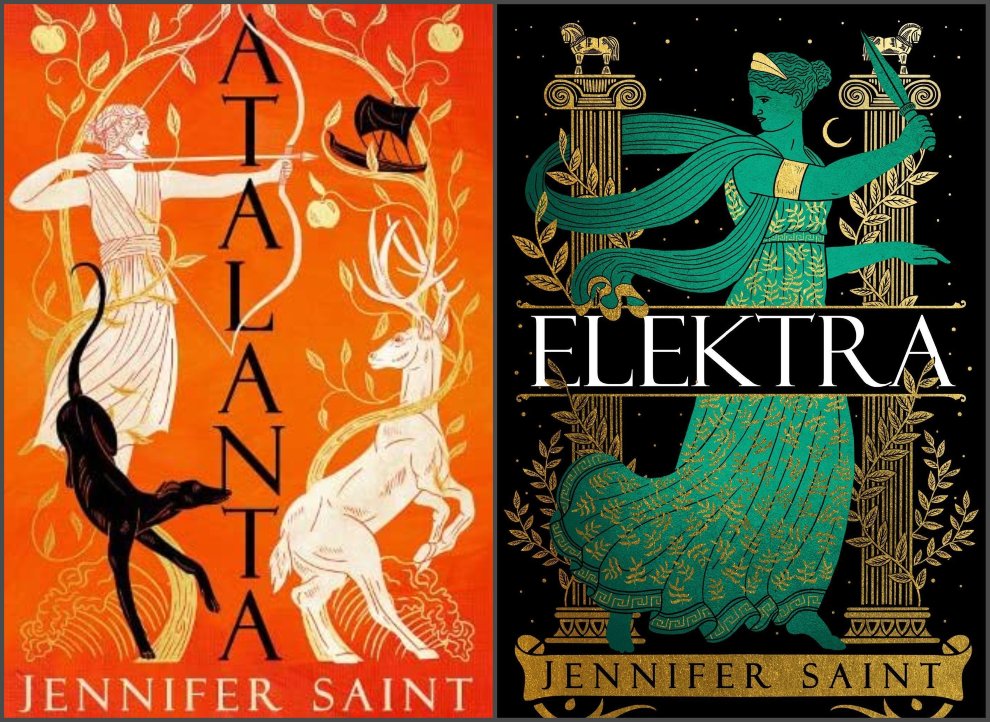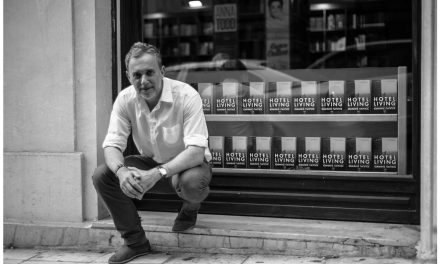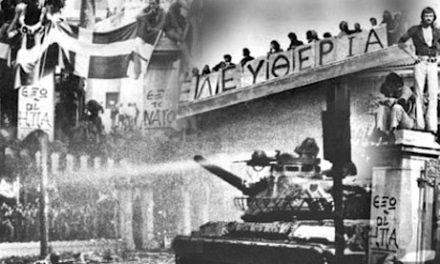Jennifer Saint grew up reading Greek mythology and was always fascinated by the unknown stories hidden within the myths. After thirteen years of teaching in schools in England, he wrote Ariadne, which tells the myth of Theseus and the Minotaur from the point of view of Ariadne, the woman who played a decisive role in the development of the story. Jennifer Saint currently lives in Yorkshire with her husband and two children, writing being her main occupation.
Your debut novel Ariadne recently translated in Greek and published by Kaktos, forges a new epic that puts the forgotten women of Greek mythology back at the forefront as they strive for a better world. Tell us a few things about the book.
Everyone knows the story of Theseus and the Minotaur; a familiar tale of a brave hero slaying a terrible monster. But you don’t have to delve far into Greek mythology to find more interesting characters in that story whose stories aren’t told as often, in particular that of Ariadne – the woman who saved the hero. In putting Ariadne in the spotlight, I found it revealed a darker side to Theseus, and made me reconsider who the real monster of such stories truly is. In Ovid’s Heroides, Ariadne commands Theseus to remember her when he boasts of his feats to admiring crowds. I felt that in writing the novel and giving her a voice to tell of her own courageous deeds, I was honouring her desire not to be forgotten and to be more than just a footnote in a hero’s legend.
Your next two novels Elektra and Atalanta also revolve around a female mythological figure. How is woman, in all her archetypal roles and representations, imprinted in your writings?
There are so many fascinating, powerful and compelling women in Greek mythology, but over time some of their stories have become watered down and their roles reduced to one-dimensional stereotypes on the fringes of the men’s stories. Elektra was important enough to the be the titular subject of tragedies by both Sophocles and Euripides, while Atalanta took part in famous quests – not least the voyage of the Argonauts, according to some sources. It has been really important to me to take these women of myth and present them as fully-dimensional, fleshed out people in their own right rather than viewing them only through the lens of their relationships to more famous male characters. I wanted to explore Elektra’s relationship with her mother as well her obsession with her father, and to see how Atalanta grows up as the protégée of Artemis as a young woman whose very name means ‘equal in strength’ – someone who can take her place alongside any hero.

How challenging is to revive ancient Greek mythology? Which were the main challenges you were faced with while delving into the ancient Greek mythological world?
A major challenge in writing a novel based on Greek mythology is to untangle the contradictions and the complicated timelines. Myth grows through retellings over the ages, and these stories have been recounted across time and place by so many different people and this means that where they intersect we often encounter multiple interpretations and versions of the same story. It’s very likely, for example, that Atalanta was two different women, both with the same name and capable of extraordinary feats and over time they have merged into one. The deeper you delve, the more like a labyrinth mythology becomes with so many twists and turns and shaping this into a coherent novel can be quite complex.
‘I love it when readers tell me that after reading my novel, it sparked a deeper interest in Greek mythology and that they went on to read more.’ How did your own fascination with Greek mythology start? What is that makes Greek mythology to a non-Greek reader?
I fell in love with Greek mythology as a child, as so many people do. I was fascinated when visiting Kourion in Cyprus by the physical connection we can have to the ancient world when we walk among the ruins that are left, and then by the perhaps more powerful connection we have when we hear and share the ancient stories. I love the idea that these stories are links on a chain extending back thousands of years and that we can understand something of our shared humanity when we tell them again and reinvigorate them for a new generation. These myths have shaped and influenced our thinking and our literature and our imagination and entered our collective consciousness even if we aren’t aware of them. I think they have a lot to tell us about ourselves and the lessons we learn from myth are truly timeless.

A major trend in publishing in recent years has been the rise of the female-focused mythological retelling, books that reevaluate and reassess some of Western literature’s most famous tales through a distinctly female lens and putting the spotlight squarely on the women who are often left to languish in the margins of men’s stories. How is this trend to be explained?
I think that when we’re told mythical stories as children, they focus on the heroes, gods and monsters and they are tales of battles and quests and exciting adventures. But as we grow up, we become interested in reexamining and revisiting the myths to find the stories hidden underneath. By putting the focus on the women, we begin peeling back the layers to discover how much deeper and richer these stories really are. It’s so important that girls and women see themselves in the centre of foundational legends and that we hear female voices and perspectives and in the wake of movements like MeToo, there is certainly a greater appetite for that which is very welcome!
*Interview by Athina Rossoglou
INTRO IMAGE: © Katie Byram Photography
TAGS: LITERATURE & BOOKS | READING GREECE














